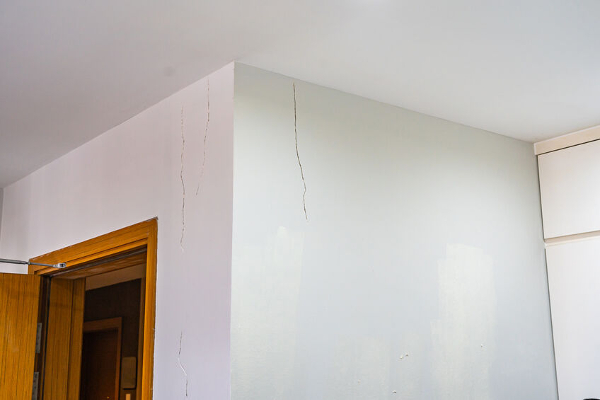People get their houses renovated for several different reasons – from expanding the family to selling off their home.
Whether you’re renting, buying, or selling, the renovation journey is one you’ll most likely be experiencing sometime in your life.
Unfortunately, all the renovation woes you’ve heard of are very, very real. If you’re not careful, the whole experience can quickly turn sour if you become embroiled with one of the many unscrupulous contractors in Malaysia.
On top of not getting the perfect home you envisioned, you might even end up with a whole load of debt on your hands.
So, what happens when you accidentally hire the wrong person for the job, or worse – a scammer?
What Are The 10 Common Renovation Disputes A Homeowner Might Face?
Prevention is better than cure, so it’s always prudent to know what can go wrong in the journey to attaining your dream home.
After all, renovation disputes are far more common than you might think. Here are 10 to watch out for:
- Engaging the services of an unregistered scam contractor
- Construction wasn’t executed according to plan
- Unreasonable requests from the homeowner to change design plans
- Shoddy workmanship and sloppy construction quality
- Lax attitude resulting in construction delay
- Use of inferior electrical equipment or construction materials
- Unnecessary waste of construction materials
- Errors in cost estimation resulting in an ever-expanding budget
- Engineering defects and warranty issues
- Contractor mysteriously disappears after receiving payment
4 Precautionary Measures Homeowners Should Take Before Hiring A Renovation Contractor
You’ve got a lot of details to figure out prior to signing on the dotted line, from the renovation budget, to payment timelines, to the materials used.
But above all, choosing a reliable contractor that’s qualified and experienced enough for the job is key, so that you can avoid any disputes with your renovation contractor.
Below are four preventative steps you can take to save you from possible renovation headaches.
1) Your renovation contract is your best friend
After a thorough shortlisting and screening process, you’ve finally found a suitable contractor. Congratulations! The next, and most important step is for you to enter into a written contract.
Your renovation contract should clearly stipulate the responsibilities, obligations and various agreement terms of both parties during this renovation period.
As long as you have this contract in place, the rights and interests of both you and your contractor are protected by law.
Your contractor may insist that you rely on ‘trust’ and mere verbal agreements – which is highly discouraged. Yes, verbal contracts are a thing. But no, they will not be easy to enforce in court.
2) Closely supervise the renovation progress
Rather than relying on an intermediary such as your interior designer, it’s recommended that you – as the owner or landlord – regularly supervise your home’s renovation works.
Many contractors might concurrently undertake other projects elsewhere, possibly spreading manpower and materials thin. Regular inspections will encourage your contractor to stick closely to the designated timeline.
With that being said, some delays in renovations are unavoidable, but an experienced contractor will be able to negotiate a mutually agreed-upon deadline between both parties.
3) Work out a payment timetable – and stick to it
Discuss with your contractor to identify a payment timetable that works for both parties, then capture it in black and white.
Rather than paying everything upfront, portioning out your payments in accordance to renovation milestones will help safeguard you from possible scam contractors.
When renovation works have been done well and payments are rightfully due – it’s also important that you pay your contractor promptly to avoid delays (not to mention souring the relationship!).
4) Inspect closely after renovation works are completed
After renovation works are done, a thorough inspection is necessary to ensure satisfactory work.
While there are home inspection companies who offer such services – below are six tips you can keep in mind when self-inspecting:
- Check if building materials are in accordance with your original requirements
- Check every corner to ensure satisfactory workmanship
- Check if the tiles reveal a hollow sound when knocked
- Check if all fixtures are working properly
- Check if all electrical points and sockets are functioning well
- Test to see if equipment and appliances are installed correctly
Close inspection after your renovation is done will help reveal any defects ASAP, avoiding the need for future rectifications which can be time-consuming and expensive.
We recommend that at least two people visit the site during this inspection process. This way, one person can be responsible for recording videos and taking photos, while the other person performs the inspection.
There’s also the secondary benefit of having someone who can help testify in the event of conflict.
How To Choose A Contractor For Renovation?
Have you ever stopped to wonder if the contractor you’re looking to engage with is really who they claim to be?
With so much money involved in renovation works, it’s recommended that you conduct a company search with the Companies Commission of Malaysia (CCM), better known as Suruhanjaya Syarikat Malaysia (SSM), to make sure the contractor you’re in talks with is an active and legally registered company.
The SSM search will reveal the company’s business registration name, number, address, date of establishment, company business activities, as well as directors and shareholders.
The Construction Industry Development Board (CIDB) Act also states that any person who undertakes renovation works must be registered with CIDB as a contractor.
You can directly request for CIDB licensing proof when screening possible candidates, or simply conduct a search here.
Additionally, don’t forget to check if your CIDB-licensed contractor is even qualified to undertake your specific renovation needs to begin with. This depends on their CIDB grade which ranges from G1 to G7 as detailed below:
CIDB Grade |
Tender limit |
| G1 | Not more than RM200,000 |
| G2 | Not more than RM500,000 |
| G3 | Not more than RM1 million |
| G4 | Not more than RM3 million |
| G5 | Not more than RM5 million |
| G6 | Not more than RM10 million |
| G7 | No limit |
Where To Complain About Renovation Contractor In Malaysia?
There are thousands of renovation contractors in Malaysia, many of them worth their salt. But for every integrous contractor, there are twice as many dishonest ones, and no matter how diligent you are in choosing your contractor wisely – mistakes are bound to happen.
Here are three complaint channels you can turn to to voice your renovation woes:
1) File a police report
When most homeowners encounter such situations, their first thought is to head to their nearest police station.
If you can prove that the contractor had the intention to deliberately deceive, such a situation may constitute a criminal offence.
However, more minor disputes such as renovation requirements not being met can be difficult to prove, and may not compel enough reason for the police to intervene.
2) Tribunal For Consumer Claims (Tuntutan Tribunal Pengguna Malaysia – TTPM)
In the absence of a police report, it can be helpful to lodge a complaint via the Tribunal for Consumer Claims instead. If your claim does not exceed RM50,000, this might be your best option as the application process is simple and inexpensive.
You can file a claim online, and each claim form only costs RM5.
The Tribunal is established under Section 85 of the Consumer Protection Act 1999. Cases that fall under the jurisdiction of The Tribunal include:
- Claims which do not exceed RM50,000
- Cause of action accrued within 3 years of the claim
3) National Consumer Complaints Centre (NCCC)
In addition, you can also file a complaint with the National Consumer Complaints Centre – a platform which serves as a complaint centre for consumers, while also acting as a mediator to help resolve disputes between consumers and businesses.
Once a case is filed, the NCCC will act as a legal mediator between the complainant and the complainee.
If the complainant is not satisfied after mediation, the NCCC will transfer the case to the relevant department according to the type of case at hand.
How To Write A Contract For Home Renovation: 8 Major Clauses To Include
For a small fee, you can entrust a law firm to tailor a renovation contract for you. Otherwise, you can also download a sample renovation contract formulated by the Construction Industry Development Board.
This sample renovation contract covers all the basic terms of a renovation contract, including the legal obligations of the owner and contractor, the time and duration of construction, the cost of the project, and even the means of resolving disputes.
While there’s no one size fits all, pay attention to the eight major clauses below when you’re modifying this contract to fit your needs:
1) The scope of project
This clause outlines the type of work the contractor must complete in as much detail as possible – from brands to colours used.
2) Charges and fees
This clause contains the mutually agreed-upon payment amount, terms, methods, conditions, and deposit. Generally, the renovation deposit is 15% to 20% of the total cost, and is non-refundable.
Remember that payments should be paid in stages, in accordance to renovation progress and tied to specific milestones.
3) Obligations and responsibilities
This clause clearly defines the obligations of both the client (homeowner) and the contractor.
Typically, these include tasks such as applying for renovation permits, which is usually required for major renovations which will affect the building’s structure, including demolishing walls or expanding structures. Not sure if you need a permit to renovate? Read more here.
4) Project timeline
This clause sets out the dates when renovation works will start and end, as well as details such as permissible hours (check with your local council and/or management body).
Renovation contractors need to complete specific work within a predetermined time limit or the owner can claim compensation. Generally, the homeowner will give the contractor a grace period of 7 to 10 days on this clause.
5) Liquidated Ascertained Damages (LAD)
Liquidated Ascertained Damages (LAD) help cover any predicted losses which might occur as a result of the project being delayed (for example: additional rental costs).
This clause sets out a predetermined compensation sum which the homeowner can claim for the contractor for every day of delay beyond the agreed completion date.
6) Variations
It can be difficult for contractors when homeowners decide to change renovation plans out of the blue, even if the contract has already been signed.
If both parties agree to allocate leeway for changes prior to drawing up the contract, additional fees and adjustments in the project completion date can be stated here.
7) Defect Liability Period and Warranties
In renovation terms, the Defect Liability Period (DLP) is the period of time from the project completion date, in which the contractor is responsible to fix any defects.
This clause will also contain workmanship quality standards that the contractor is responsible to meet, and what is to be done if they fail to meet them. Warranty periods (where applicable) will often include flooring, tiling, wallpaper, electrical appliances and more.
8) Dispute resolution and mediation
This clause specifies how both parties will resolve disputes, and what to do if there are issues not addressed in the contract.
Finally, remember to draw up your renovation contract as clearly and in as much detail as you can. Not only will this avoid possible distortion of the terms in the event of conflict, but you’re likely to repel any unscrupulous contractors at the outset.
‘Home renovation’ and ‘fuss-free’ are not two terms that are commonly associated together.
With that being said, the more effort you put into the pre-renovation process, the less trouble you’ll encounter during and after the process. Or at the very least, the better you’ll be able to cope with it.
For more tips, browse our renovation and home design guides to help you navigate the tricky road of home renovation and interior design in Malaysia!
Relevant Guides:
Disclaimer: The information is provided for general information only. PropertyGuru International (Malaysia) Sdn Bhd makes no representations or warranties in relation to the information, including but not limited to any representation or warranty as to the fitness for any particular purpose of the information to the fullest extent permitted by law. While every effort has been made to ensure that the information provided in this article is accurate, reliable, and complete as of the time of writing, the information provided in this article should not be relied upon to make any financial, investment, real estate or legal decisions. Additionally, the information should not substitute advice from a trained professional who can take into account your personal facts and circumstances, and we accept no liability if you use the information to form decisions.


















